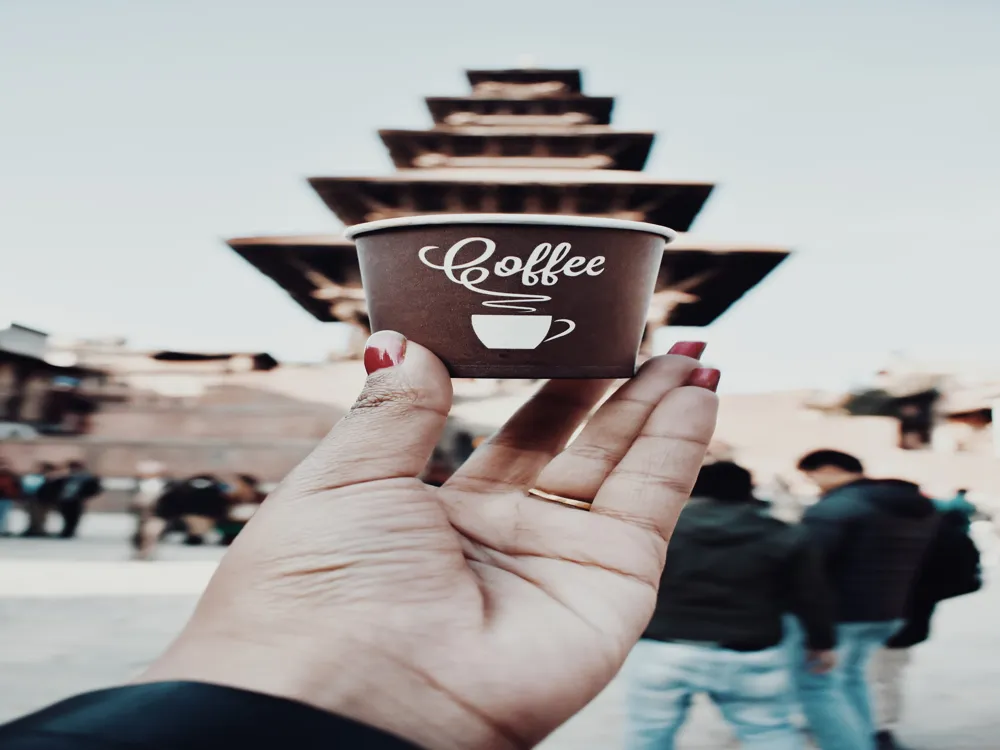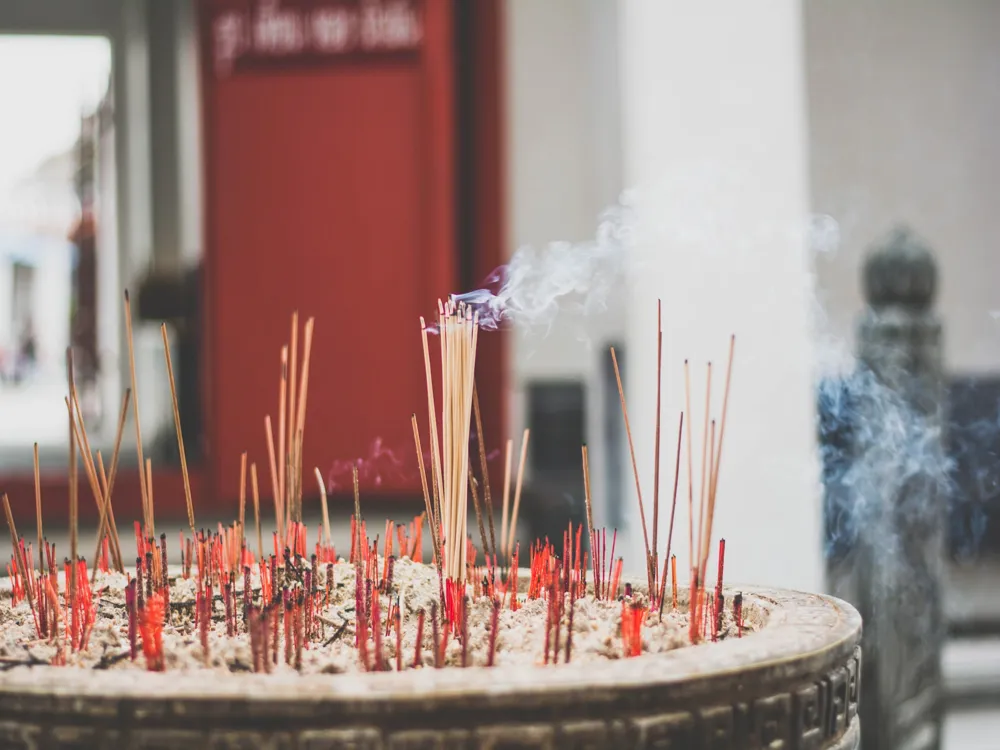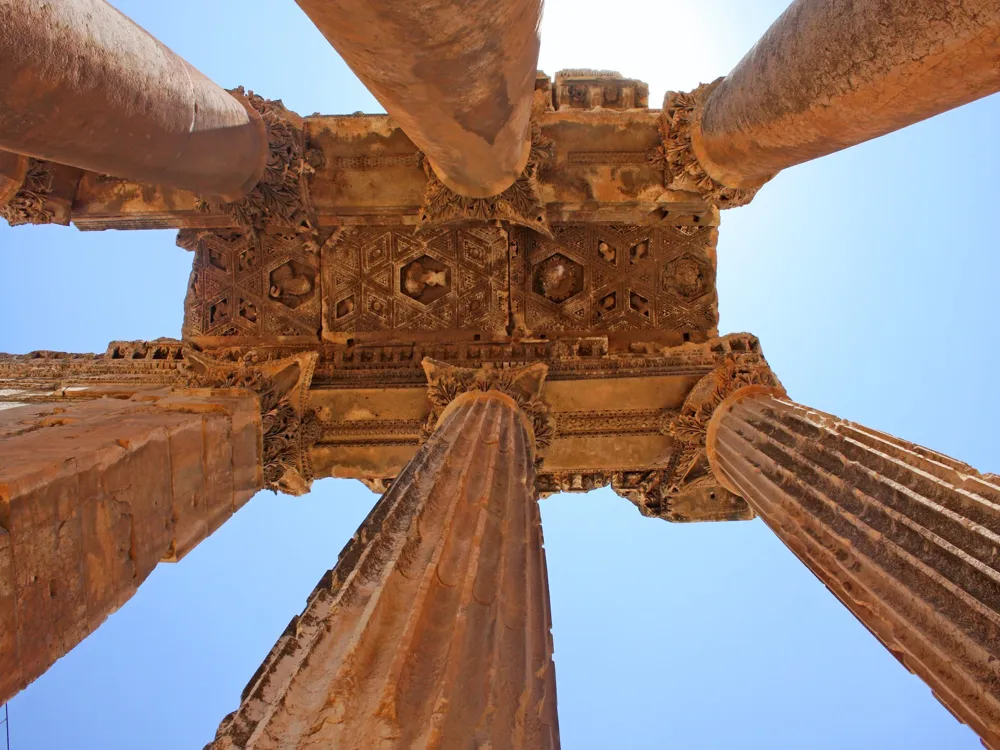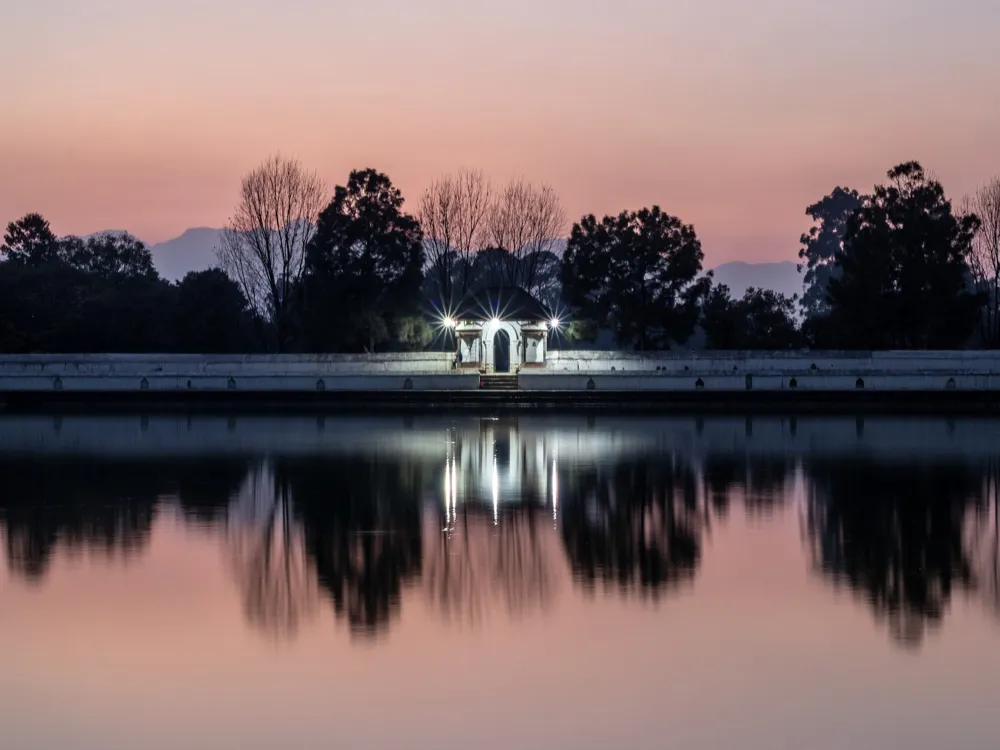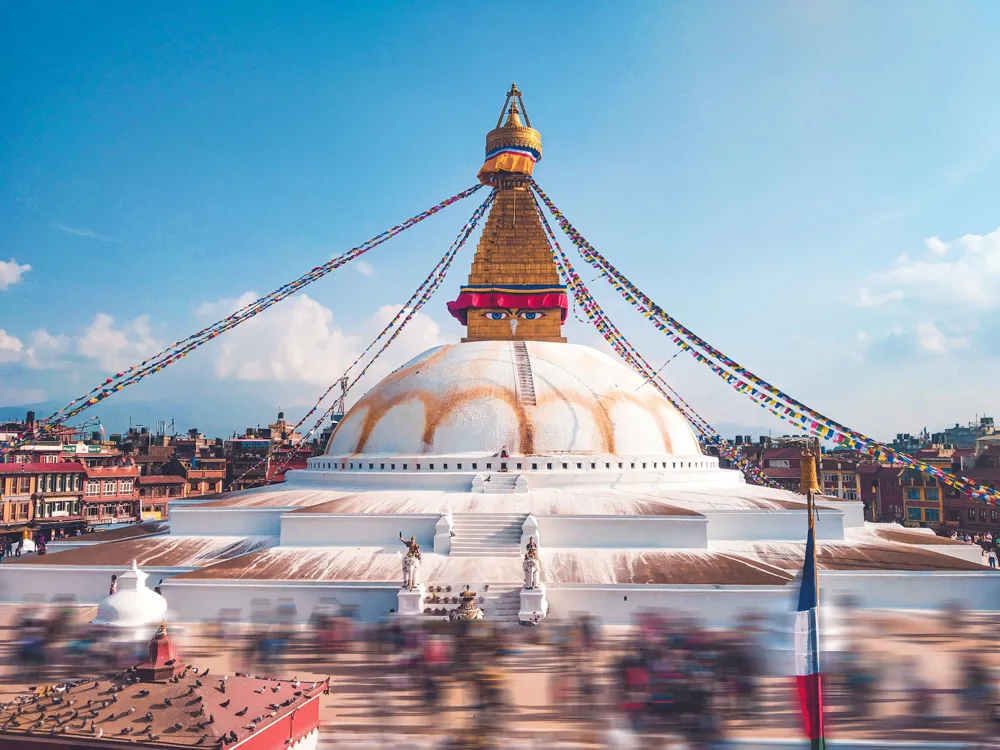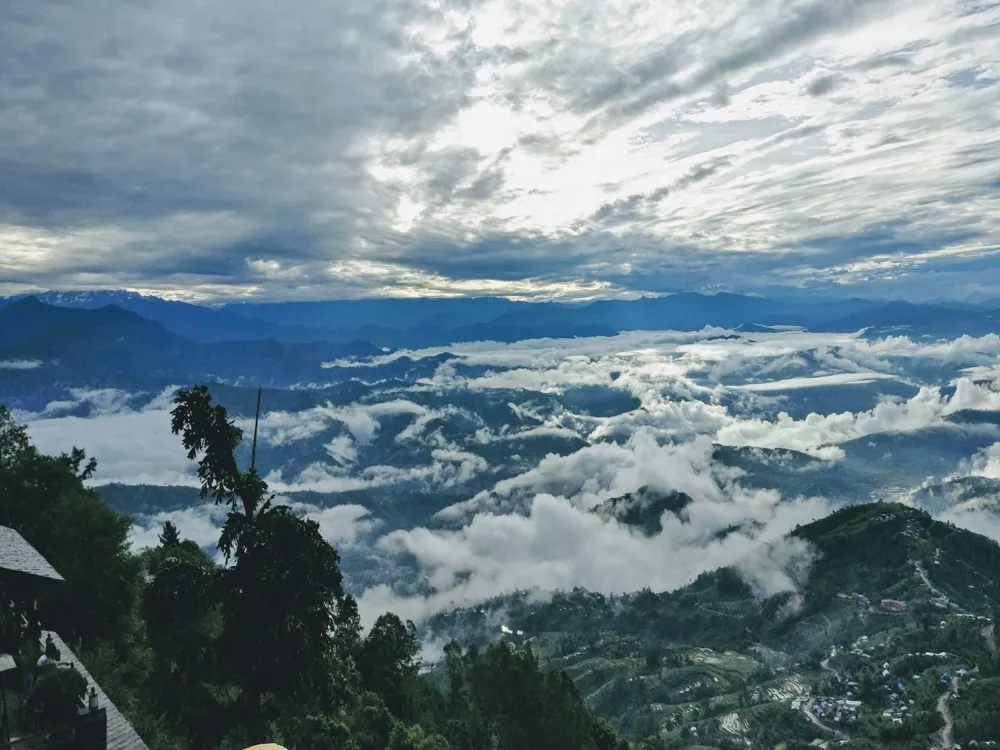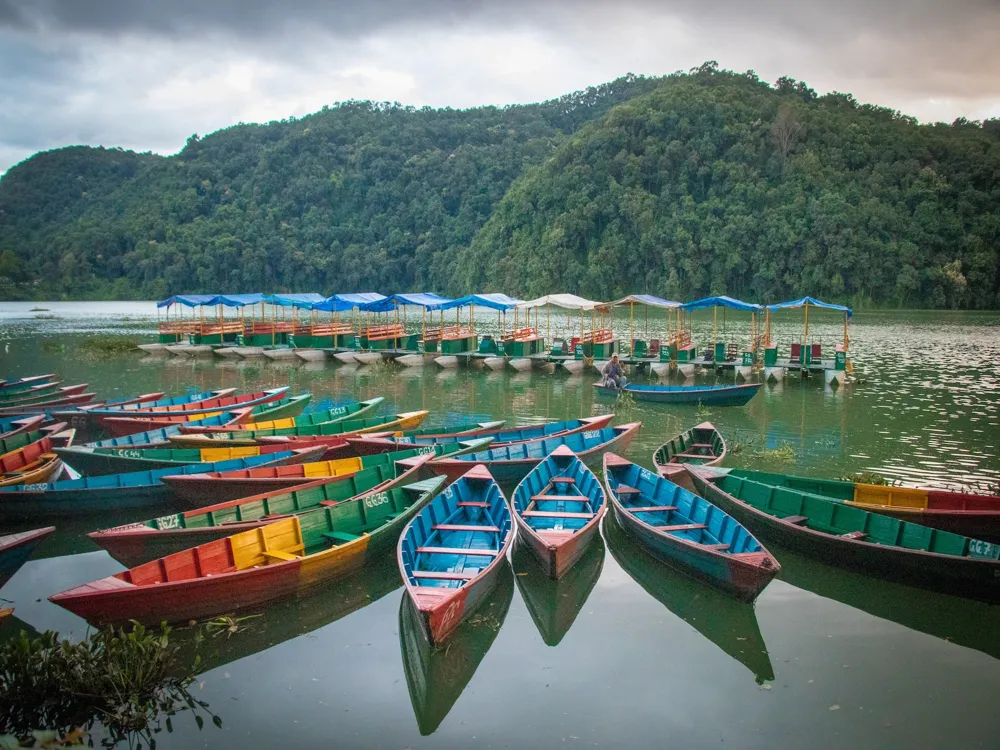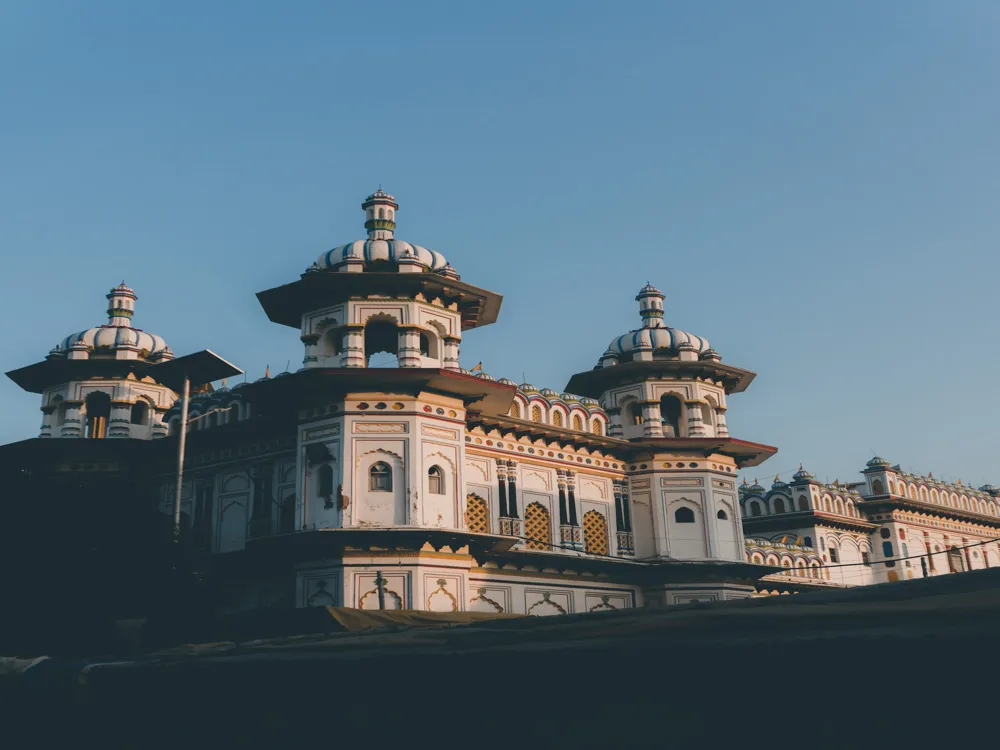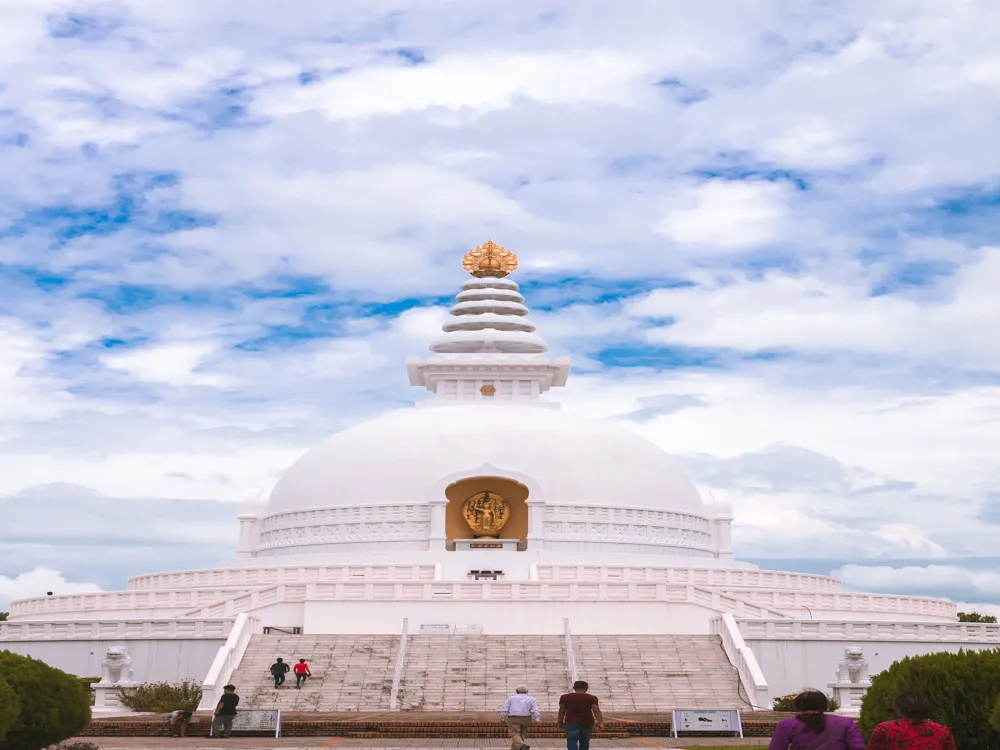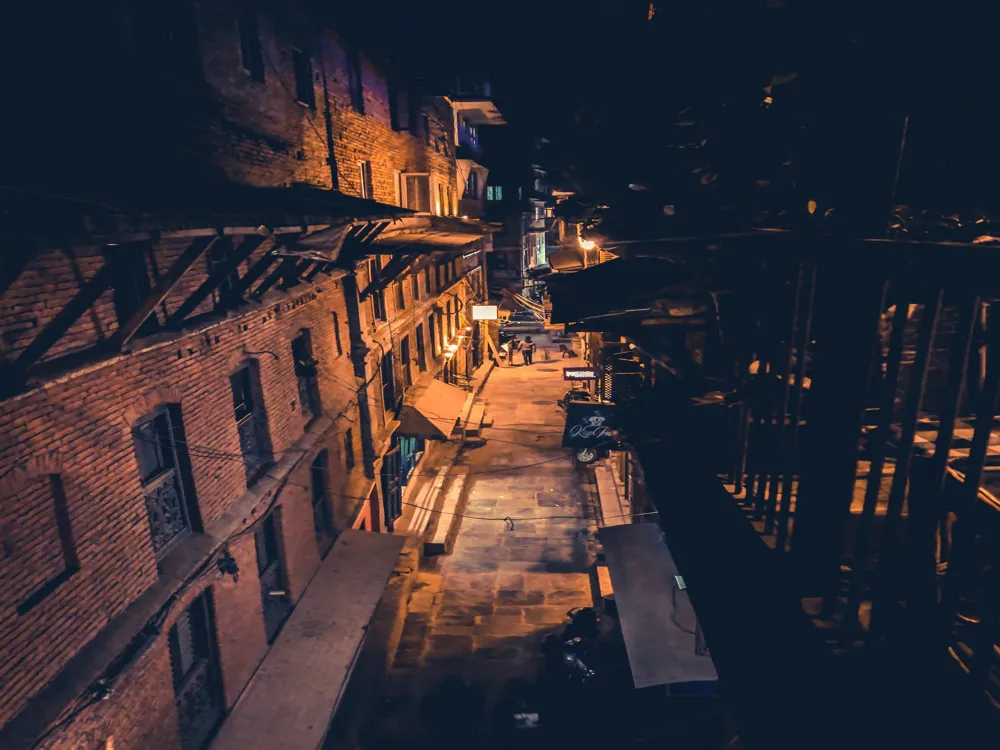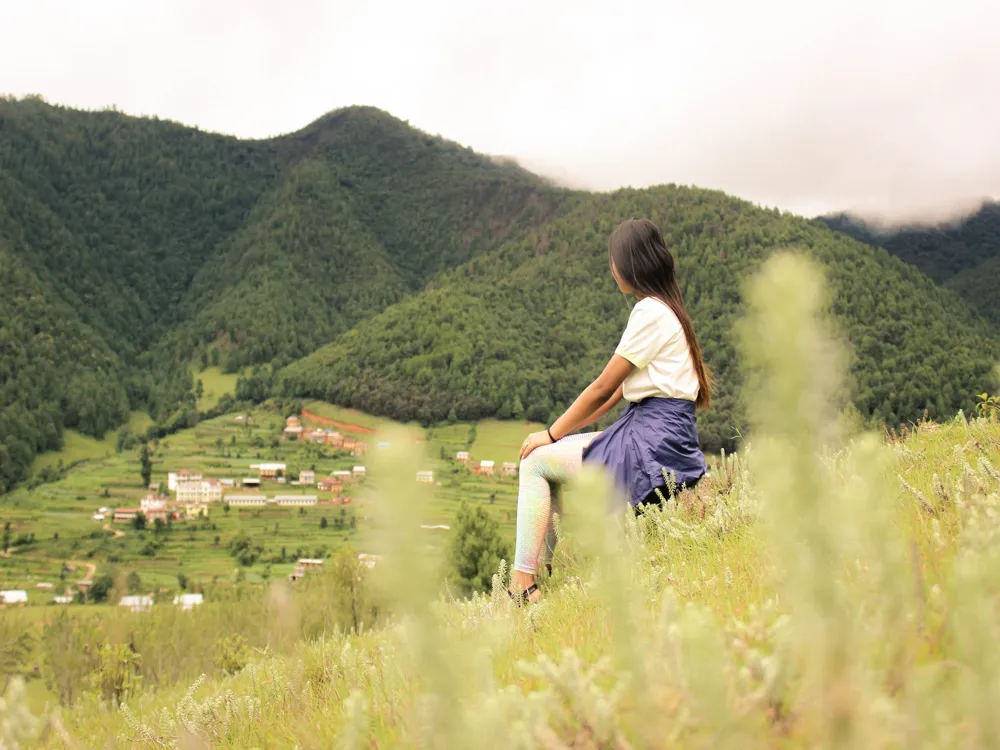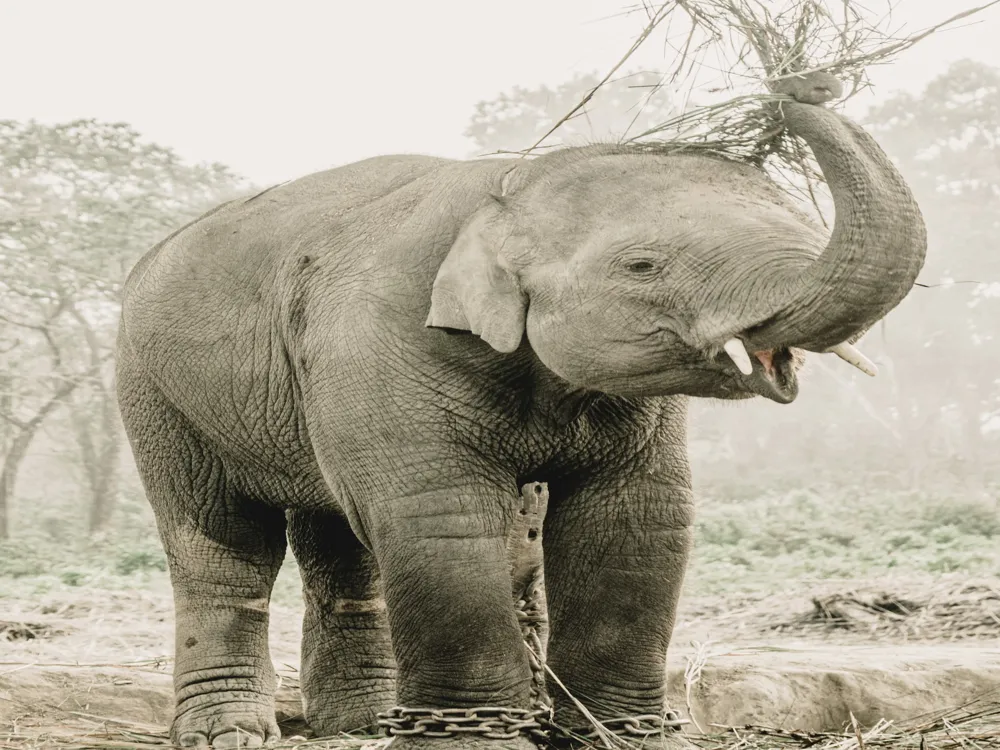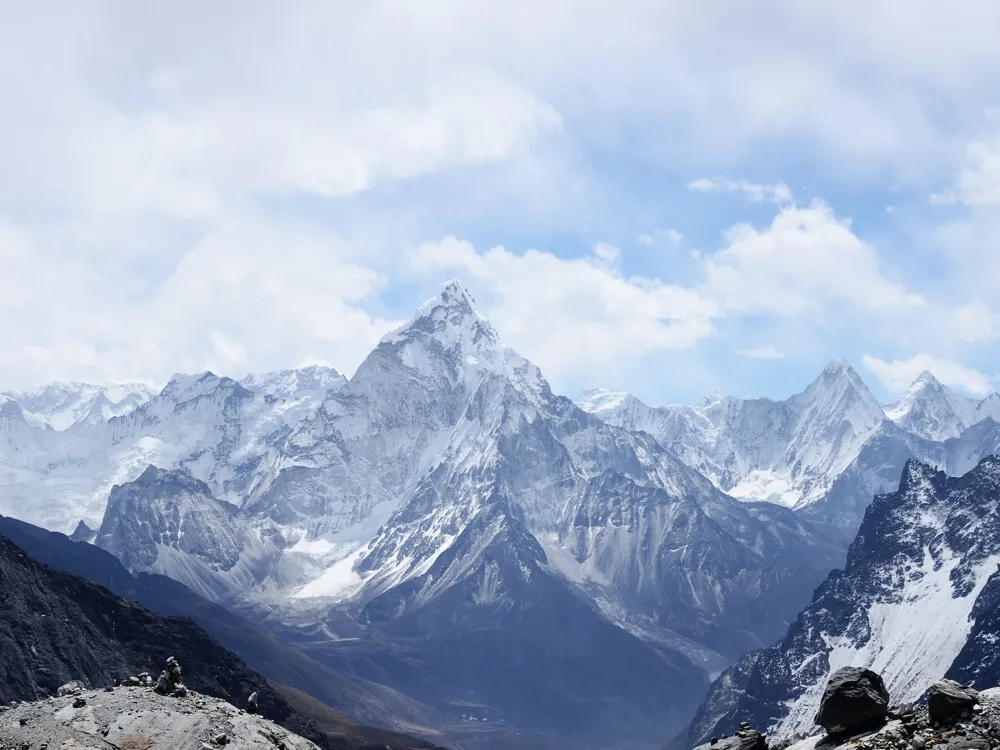The Nyatapola Temple, a quintessential emblem of Bhaktapur's rich cultural heritage, stands as a testament to the architectural grandeur of the Kathmandu Valley. Built in 1702 AD during the reign of King Bhupatindra Malla, this five-storied pagoda is the tallest temple in Nepal, reaching nearly 30 meters high. The name 'Nyatapola' in Newari means 'five tiers', reflecting its unique structure. Its significance extends beyond its height; the temple is a remarkable example of Newar architecture, showcasing the skills and artistic prowess of the craftsmen of the time. The temple is dedicated to Siddhi Lakshmi, the tantric goddess of prosperity and power, also known as Luma Mahadev. It is adorned with intricately carved wooden figures and sculptures that represent various deities and mythical beings. Each tier of the temple offers a different perspective of the ancient city and its surroundings, providing visitors with a literal and figurative elevation above the bustling streets of Bhaktapur. The temple not only serves as a place of worship but also as a symbol of the resilience and strength of the Newar community, having withstood numerous earthquakes over the centuries. The architecture of Nyatapola Temple is a marvel, blending both the religious and the aesthetic elements of Newar architecture. The five-tiered structure is built on a high plinth and follows a strict geometrical symmetry, which is a hallmark of Nepalese temple design. The base of the temple is wider, giving it a pyramid-like shape that enhances its stability – a critical feature in a region prone to earthquakes. Each tier of the temple features intricately carved wooden struts, beams, and eaves, depicting various gods and goddesses from Hindu mythology. The corners of each tier are adorned with figures of griffins, while the central stairway is flanked by statues of legendary figures and animals. These figures are not merely decorative; they serve as guardians of the temple and symbolize strength and protection. The tiers gradually decrease in size as they ascend, giving the temple an imposing yet harmonious appearance. The best time to visit Nyatapola Temple is during the autumn months from September to November. The weather is pleasant, and the skies are clear, offering stunning views of the temple against the backdrop of the Himalayas. Additionally, the festive season of Dashain and Tihar during this period brings a unique vibrancy to the temple surroundings. Visitors should be aware of and respect the cultural and religious significance of Nyatapola Temple. It is advisable to dress modestly and remove shoes before entering the temple premises. Photography may be restricted in certain areas, so it is best to ask for permission before taking pictures. The area around Nyatapola Temple, Bhaktapur's old town, is rich in cultural heritage. Visitors are encouraged to explore the narrow alleys and courtyards, which are home to traditional Newari houses, artisan workshops, and other historical temples. Nyatapola Temple is located in Bhaktapur, which is about 13 kilometers east of Kathmandu. Visitors can reach Bhaktapur by taxi, local bus, or private vehicle. Once in Bhaktapur, Nyatapola Temple is situated in the Taumadhi Square and is easily accessible by foot. The temple's towering structure makes it a prominent landmark within the city, making it easy to locate. READ MORE:Overview of Nyatapola Temple in Bhaktapur
Architecture of Nyatapola Temple
Tips When Visiting Nyatapola Temple
Best Time to Visit
Cultural Sensitivity
Exploring the Surroundings
How to Reach Nyatapola Temple
Nyatapola Temple
Bhaktapur
NaN onwards
View bhaktapur Packages
Weather :
Tags : Temple
Time Required : 1 - 2 hours
Entry Fee : No entry fees
Planning a Trip? Ask Your Question
Bhaktapur Travel Packages
View All Packages For Bhaktapur
Top Hotel Collections for Bhaktapur

Private Pool

Luxury Hotels

5-Star Hotels

Pet Friendly
Top Hotels Near Bhaktapur
Other Top Ranking Places In Bhaktapur
View All Places To Visit In bhaktapur
View bhaktapur Packages
Weather :
Tags : Temple
Time Required : 1 - 2 hours
Entry Fee : No entry fees
Planning a Trip? Ask Your Question
Bhaktapur Travel Packages
View All Packages For Bhaktapur
Top Hotel Collections for Bhaktapur

Private Pool

Luxury Hotels

5-Star Hotels

Pet Friendly








